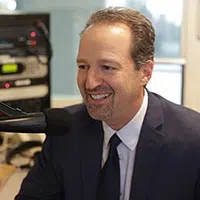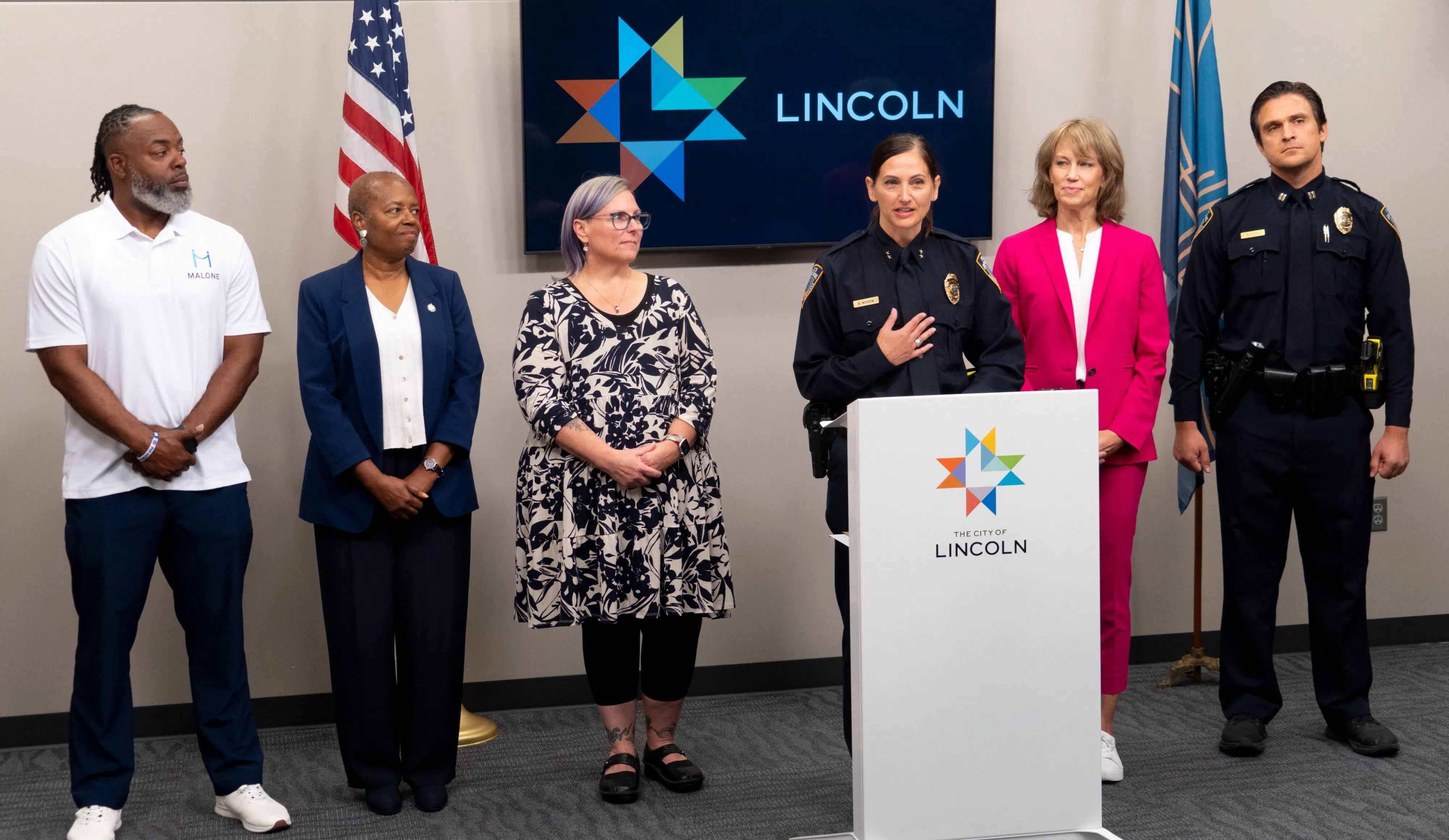The Lincoln Police Department (LPD) will be rethinking their approach to calls involving a mental health crisis.
Mayor Leirion Gaylor Baird was joined by officials today to announce the new Co-Responder Program, establishing a partnership between LPD and CenterPointe, a local mental health and substance use treatment organization.
The program enables law enforcement and mental health professionals to jointly respond to calls for service involving people experiencing mental health crisis. During these calls, CenterPointe professionals will be able to provide their expertise and resources to those in crisis, while LPD officers maintain safety and security. The program also provides flexibility for LPD, allowing officers to return to service while clinicians stay on site working with the individual in crisis.
Based at LPD, co-responders will receive calls for service through a dispatch by the Lincoln Emergency Communications Center, a request by LPD officers or by monitoring emergency radio channels.
“The development of this new program speaks to the core values of LPD that emphasize the preservation of life, the importance of problem-solving both within LPD ranks and in the community, crime prevention and human dignity,” said LPD Chief Michon Morrow. “Research has shown that co-responder programs lead to better outcomes, reduce use of control by officers, decrease future contacts with callers and provide quicker access to the help people need.”
Morrow said LPD prioritized adding licensed clinical social workers and independent mental health professionals to the CenterPointe team to guarantee that the mental health professionals involved were not just qualified, but deeply experienced and compassionate.
Three responders are expected to be hired, complete training and begin working across the city by early 2025.
The initial three years of the program are funded by a $550,000 Bureau of Justice Assistance grant with a match of $221,278 from the City’s budgeted general funds. Nearly 85% of those funds will pay co-responder salaries.
The majority of the remaining funds will be used to provide necessary training for co-responders, work from the Malone Center to collect community feedback regarding police mental health response, and work by Dr. Richard Wiener and researchers at the University of Nebraska-Lincoln Department of Psychology to evaluate the effectiveness of the program.
Since May, LPD says they’ve responded to more than 5,000 mental health-related calls for service, out of nearly 47,000 total calls received during that time — roughly 10% of calls. Officers make this determination on scene when they believe the mental health condition of a person directly involved caused or contributed to the incident, regardless of the initial call for service classification.
This new partnership is similar to one launched last year by LPD and CenterPointe, establishing an “Alternate Response Program” for homeless residents, allowing members of the CenterPointe Street Outreach Team to be called instead of LPD officers in cases where they don’t need medical attention and are not violating laws.
Tami Lewis-Ahrendt, CenterPointe Executive Vice President and Chief Operating Officer, said this new Co-Responder Program is a needed expansion of CenterPointe’s crisis response programs.
“The need for behavioral health interventions, especially those like this program is significant. We are proud to partner with the City to continue to develop and provide innovative solutions to better meet the needs of our community,” Lewis-Ahrendt said. “By embedding behavioral health professionals within law enforcement response teams, we aim to de-escalate situations and connect individuals with the services they need.”







